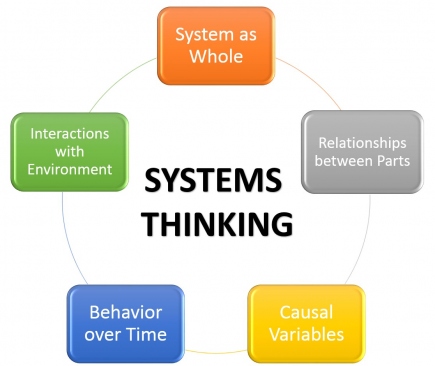Chemistry, often called the central science, provides knowledge and methods for understanding the world around us and establishes a foundation for addressing global challenges. However, chemistry education is often criticized for being reductionist, decontextualized, and disconnected from other disciplines. Further, chemistry educators have described a disconnect between the demand of preparing students to address global challenges and their knowledge of how to integrate such context and cognitive skills into their chemistry classrooms. Systems thinking is an approach for researching and learning about complex phenomena from a more holistic perspective. Proponents of systems thinking argue that such an approach will not only help students learn chemistry in a meaningful way, but that it will also prepare students to use their knowledge of chemistry to address globally-relevant issues. In previous studies, we found that a systems thinking approach in chemistry education may serve as a framework for undergraduates to make connections between chemistry concepts and real-world systems, like climate change, food insecurity, and clean energy. Further, we utilized literature from across disciplines to (1) identify five essential characteristics of systems thinking in the context of chemistry education and (2) correlate each of these characteristics with cognitive skills and tasks in which a learners can engage when participating in systems thinking activities, which resulted in a tool instructors may use to guide the analysis and optimization of activities in their chemistry course toward a systems thinking approach. This presentation will describe systems thinking in chemistry education, its benefits and challenges for students and instructors, and illustrate how a common approach for teaching equilibrium in a first year general chemistry course might be modified to teach via a systems thinking approach.

